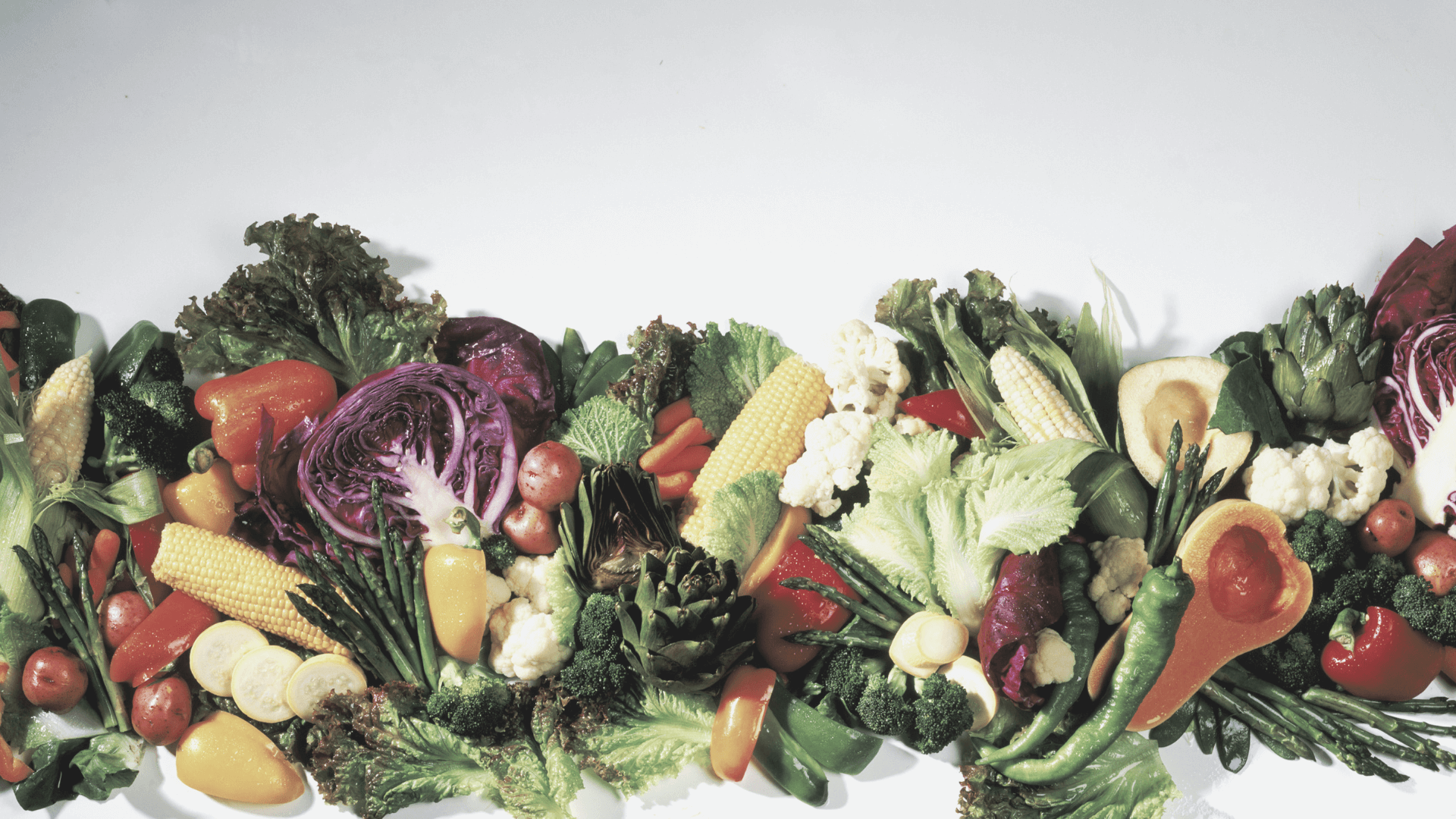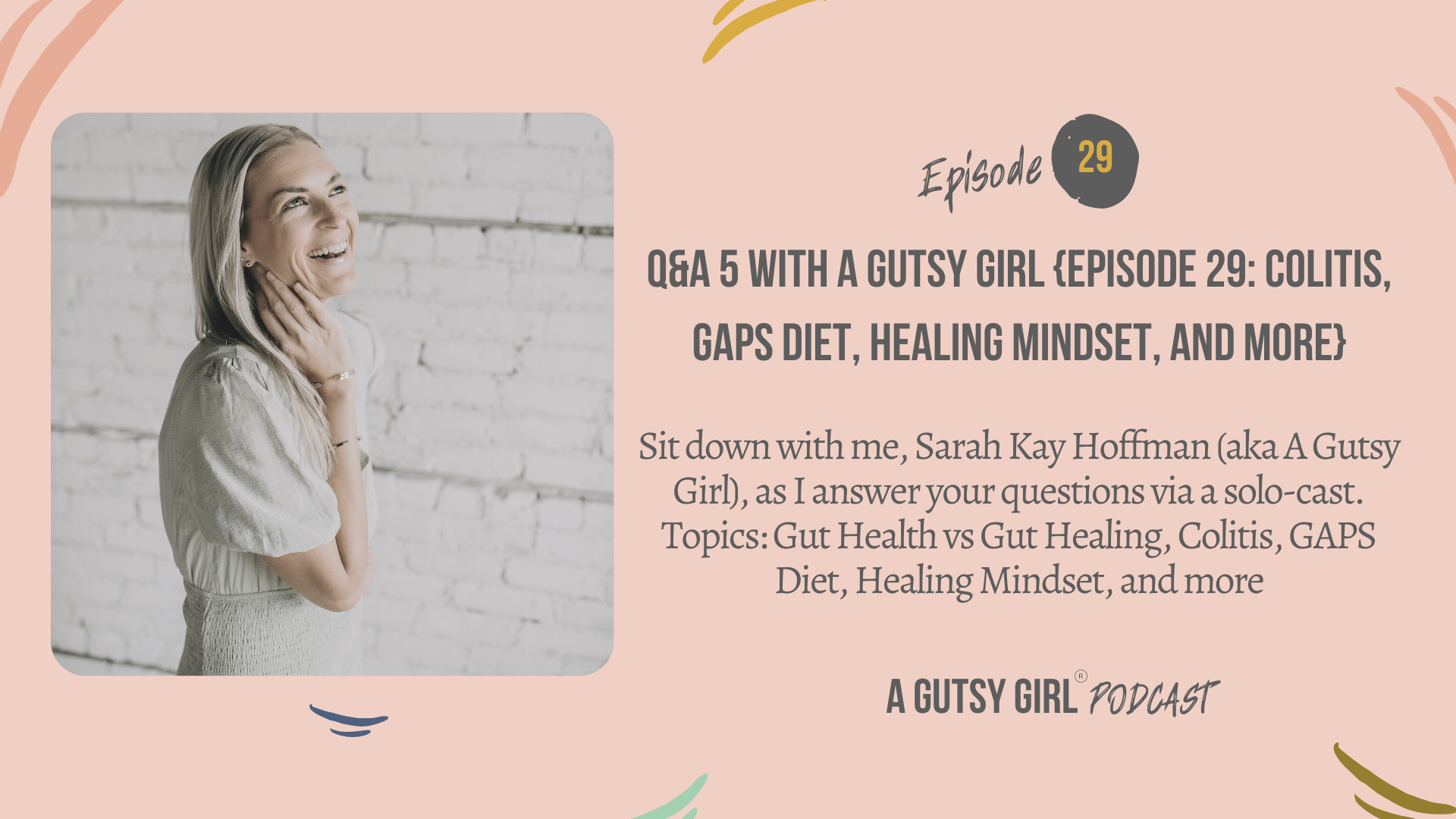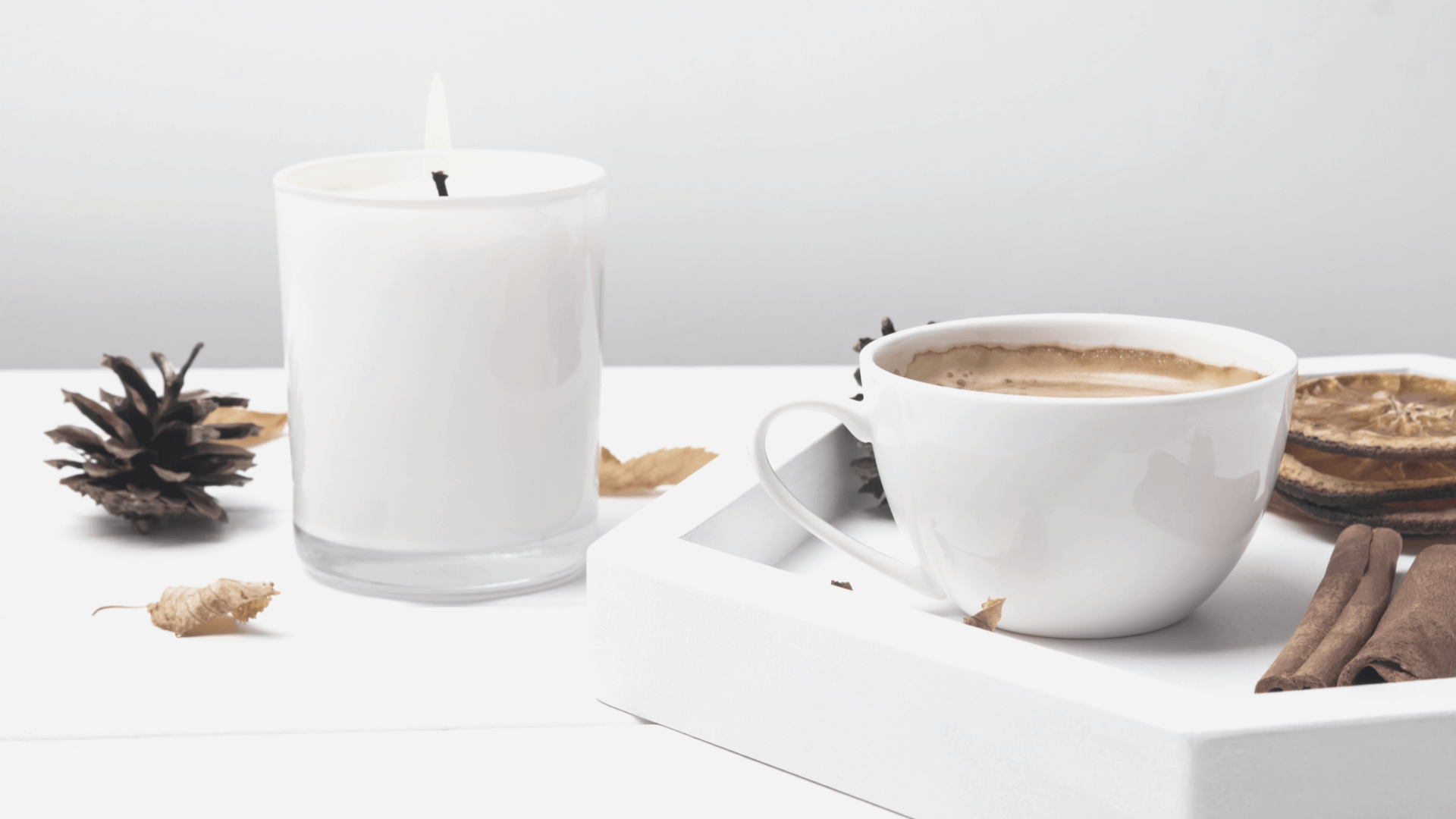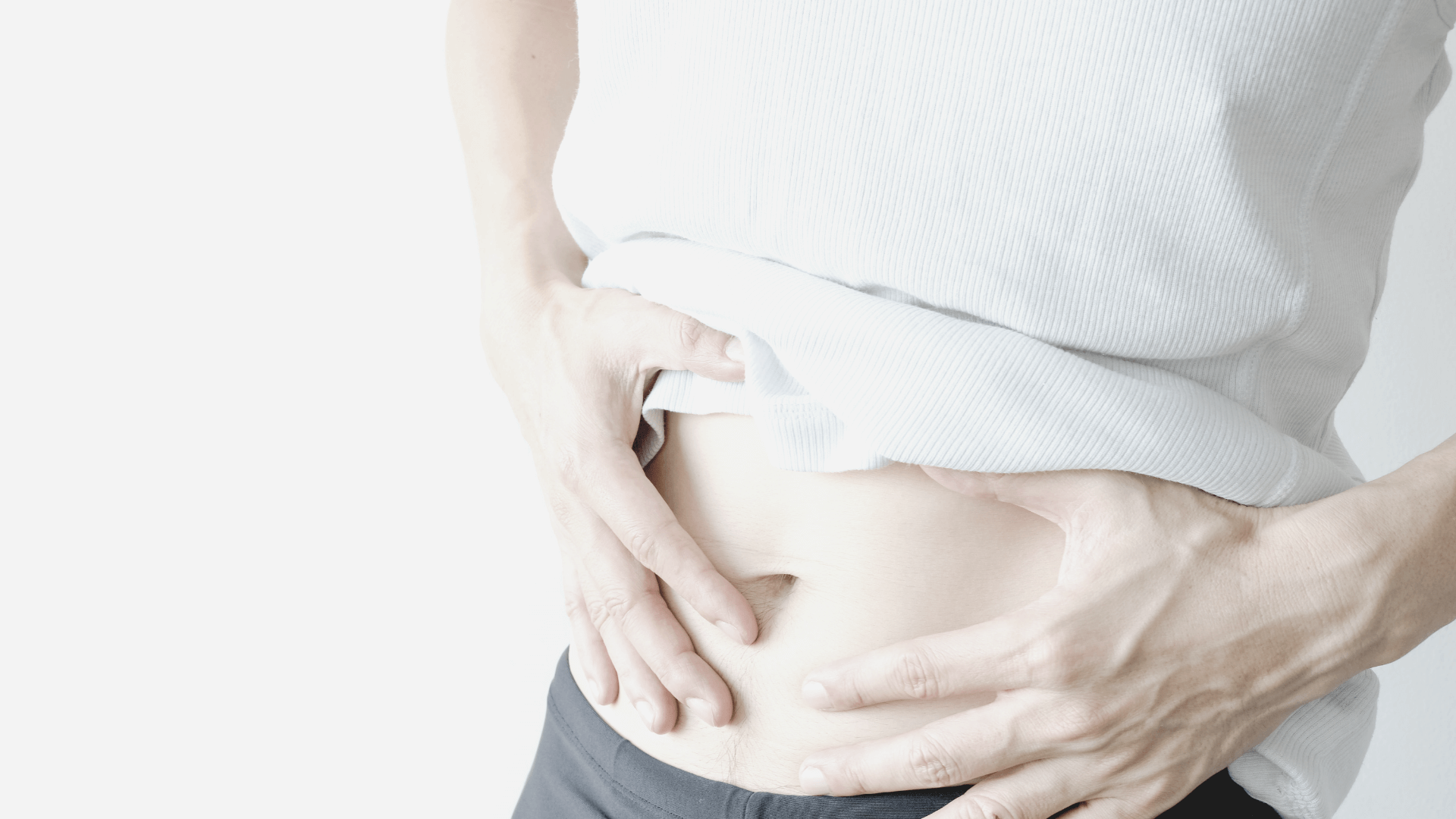Does coffee cause gas and bloating, and how can you test this out for yourself?
AGG Note: Today’s post was written by Janie Greene, who is on the A Gutsy Girl team. She was curious about the FoodMarble AIRE 2 Device, and wanted to conduct an experiment using it. So, she chose coffee to see if drinking it is a good idea for her.
Does Coffee Cause Gas and Bloating {Food Intolerance + A Fun Way To Test}
Click HERE to save this post for later.
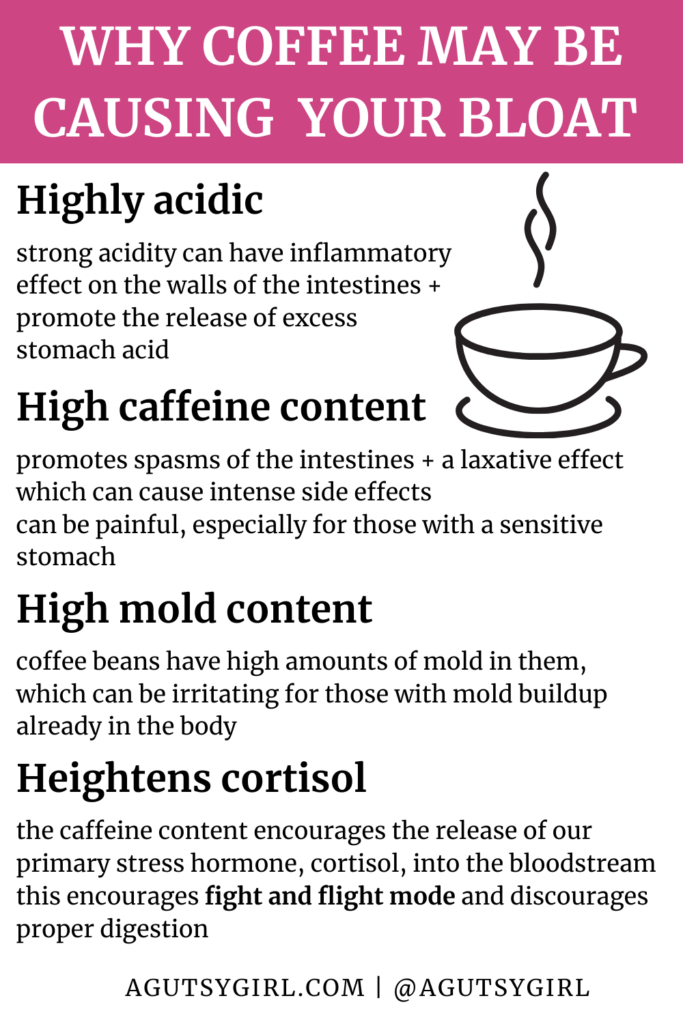
Today’s topic centers around everyone’s favorite drink… coffee.
If you have ever been diagnosed with any sort of stomach issue you may have been advised to avoid a whole host of things such as dairy, gluten, and caffeine. But why these foods in particular? And how do they affect your intestines?
I’m addressing all of these for overall health today. Ready?!
What is A Food Intolerance?
When doctors hand you this list of foods to avoid, they are providing you with some of the most common food intolerances for those with a sensitive stomach.
Contrary to popular belief, these food intolerances are not foods you are allergic to, but rather foods that cause inflammation in your body.
Oftentimes this occurs because your body lacks the proper digestive enzymes to break down certain nutrients, which leads to uncomfortable symptoms such as an upset stomach.
Food intolerances, or sensitivities, occur relatively quickly after eating a “trigger food.”
Food intolerances mostly affect the digestive system and symptoms occur as food struggles to be properly digested. They commonly affect the IgG proteins in your body, which can promote that inflammatory response that is commonly seen. (source)
What Are Common Food Intolerances?
Some common food intolerances that affect those with irritable bowel syndrome include:
- dairy (or lactose intolerance)
- gluten
- caffeine (COFFEE)
- histamine
These often cause symptoms such as abdominal discomfort, gas and bloating, and unusual bowel movements.
However, it can be difficult to tell which foods are causing your symptoms.
This makes it fairly hard to accurately diagnose food intolerances. Many people will go for years without being able to pinpoint their trigger foods. (source)
Why Coffee?
Coffee is hard on the gut for several different reasons, but everyone reacts differently to it.
Just because you have a sensitive digestive system does not necessarily mean you won’t be able to tolerate it.
Here are the top reasons coffee CAN be difficult to digest for Gutsy girls:
It is highly acidic
Coffee can be particularly hard on the gut as it is strongly acidic. Its strong acidity can have an inflammatory effect on the walls of the intestines, which can cause side effects such as acid reflux, bloat, and pain.
It can also encourage a higher amount of gastric acid secretion, which may amplify these responses.
It contains high amounts of caffeine
Its high caffeine content can also promote spasms of the intestines. This has a laxative effect, but it also can lead to pain for those predisposed to stomach pain.
This is why you have often heard that coffee drinkers usually have to go to the bathroom soon after drinking it.
It is moldy
Some people may not be aware of this, but coffee also contains a high amount of mold in it.
For the average person, this may not be irritating, but for those with mold build-up in the body, this can also stimulate an inflammatory response.
It promotes higher anxiety and stress
Coffee has a high amount of caffeine, which stimulates the release of hormones from our adrenal glands.
This results in higher levels of our stress hormones, cortisol, circulating in the bloodstream, which is not ideal for anyone with Gutsy issues.
High cortisol can send the body into a stressed state, where optimal digestion is unlikely to occur. This further promotes adverse effects such as stomach discomfort.
Should I Stop Drinking Coffee?
The short answer is… maybe.
If you feel like coffee is perpetually upsetting your stomach and causing inflammation, it is probably not a bad idea to remove it from your diet.
However, if you are anything like me, cutting your coffee habit out cold-turkey may prove to be challenging to say the least.
Here are a couple of options for decreasing the digestive discomfort that comes with your morning cup of coffee.
1. Replace it with low-acid coffee
There are brands that actually formulate their coffee to be less acidic and much easier on the stomach.
Less acidic coffee allows less irritation and can potentially also slow down some of the muscle contractions that occur in response to regular coffee.
Some of my favorite brands include:
Any of these would be a good option to reduce symptoms and inflammation.
2. Switch to matcha or anther herbal tea
Matcha green tea is a great alternative to coffee as it is much easier on the gut and contains antioxidants to calm down inflammation.
It contains a bit less caffeine, but it is truly delicious when you learn how to make it correctly.
3. Try out decaffeinated coffee
If it is the caffeine content of coffee that gives you trouble, you may consider switching over to decaf or half-caf coffee.
Both of these can help prevent some of the spasmodic effect that caffeine can have on the intestines.
This is the method I am currently starting with, and I have been surprised by how much I enjoy the ROUTINE of having a coffee in the morning.
It is not necessarily the caffeine content that makes me excited to drink it, but the taste and warmth when I wake up.
4. NEVER drink your coffee on an empty stomach
Coffee can be very hard on your adrenals, which can cause the release of unnecessary hormones into the bloodstream.
To reduce potential side-effects, make sure to always have something on your stomach before you start sipping on your daily joe.
5. Try mushroom coffee
Mushroom coffee is another fun alternative that has been shown to be easier on the gut and promote relaxation, cognitive health, and reduce inflammation.
It is a lot less harsh on your stomach and actually is good for the gut microbiome and gut bacteria, rather than disruptive.
6. Opt for hot coffee instead of cold brew coffee
Warm liquids are generally better for our GI tract than cold ones, as they are more soothing on the digestive tract.
Opt for a hot coffee in the morning rather than the classic iced options.
7. Cut the artificial sweeteners
If you are going to be drinking coffee, try to avoid all of the high sugars in creamers and syrups.
These sugars help to feed bad bacteria and bugs in the gut, which will only further reduce your gut health.
If you do need a little extra sweetness, add in some natural sweeteners such as honey or agave. You could also add a splash of almond milk for a little cream.
8. Up your electrolyte consumption
If you are relying on coffee for energy levels, consider increasing the amount of electrolytes you are consuming daily. This can be as simple as adding some sea salt to mineral water or you can buy electrolyte packets.
AGG note: As you know, I love my LMNT electrolytes, so those are always an option too. Check out THIS article for more information. In fact, I add the Chocolate Salt right to my morning cuppa Joe!
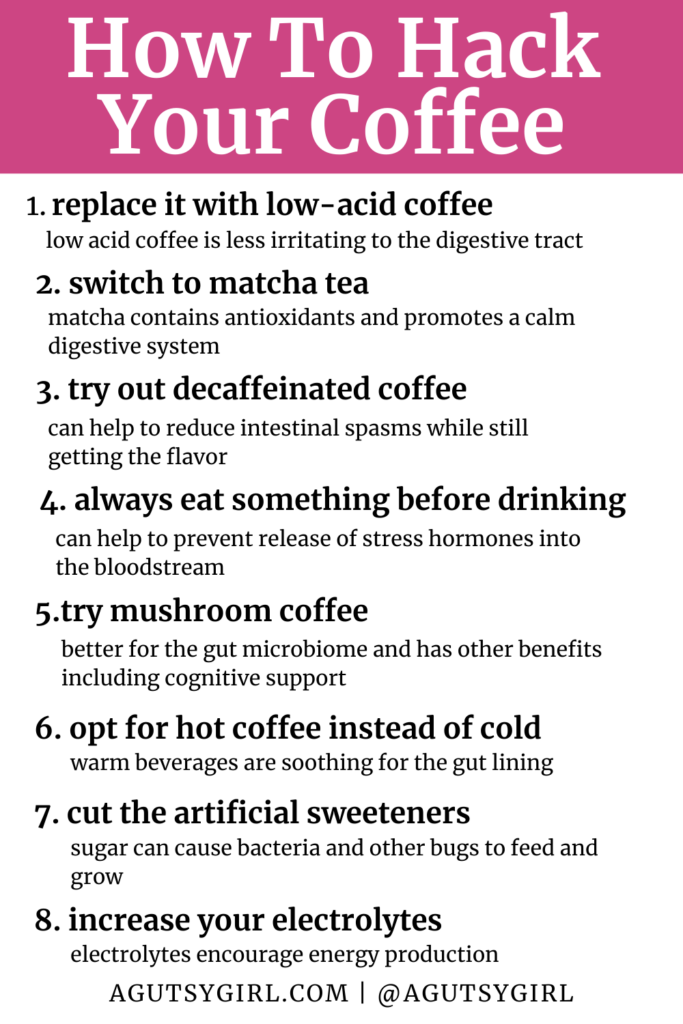
How Am I Supposed To Know If Coffee Is Even a Trigger For Me?
This is the billion dollar question that everyone asks me.
How are you supposed to figure out which foods you are sensitive to?
There are several different options and I have found ALL to be helpful.
1. Elimination diet
The elimination diet is the go-to option for many individuals trying to figure out their food sensitivities. It consists of cutting out a whole host of different foods and then slowly adding them back in one at a time.
Foods removed include:
- dairy
- gluten
- nightshade vegetables
- certain foods with sugar alcohols
- certain high fiber foods
PROS:
- inexpensive way to test food sensitivities
- allows you to have a bit more control over adding back in foods
CONS:
- can be inaccurate/ hard to tell which foods are giving you troubles
- hard to follow and stick to
- hard to tell which reactions warrant a food sensitivity label
2. Blood testing
This is another option for figuring out food sensitivities based on antibody levels in the blood.
Most food sensitivity tests require only a drop of blood and analyze IgG protein levels to see a previous reaction to certain foods.
PROS:
- extremely quick and easy
- no diet to try and follow
CONS:
- can be inaccurate
- can show elevated IgG protein levels if your gut is leaky- not diagnosing TRUE food sensitivities
3. FoodMarble Aire
In my opinion, this is the absolute best way to test for food intolerances. This device is one I have mentioned on my page before because I absolutely. love. it.
It is a portable breath testing machine that measures gases produced in response to certain foods. You can use it after a meal or snack to test how your gut is responding to what you just ate.
PROS:
- no diet involved
- instant results
- easy to keep track of + experiment with
CONS:
- can be hard to tell which EXACT food is giving you problems
- may require a bit more problem solving
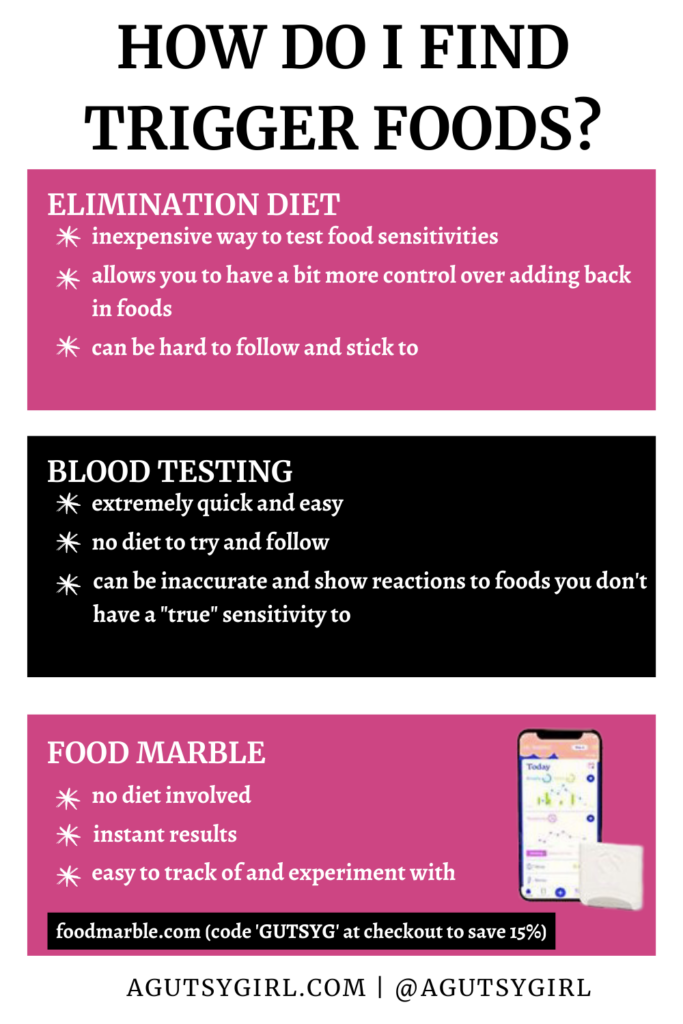
My Experience With FoodMarble Aire
I have had this device for about a month now and I can already see the difference it is making in my own digestive issues.
1 hour after every meal I do my breath testing and can see the way my body is actually digesting the food in real time!
The FoodMarble app gives me a fermentation score, which is made by comparing the levels of methane and hydrogen gases in my breath after eating.
I can log all of these scores in relation to the meals I eat, which helps me to clearly find some problem foods.
I have already limited a couple foods that I never considered would be my “triggers.”
These foods include- honey, high amounts of fruit, and oatmeal.
I have also found that I have a HIGH caffeine sensitivity, which is quite unfortunate for me.
Guess I will be dropping my caffeine habits in the upcoming month. Cue the crying.
I hope all my coffee lovers enjoyed this post today, make sure to comment if you have any more questions or you can reach out to us directly.
If you liked this post, you might also enjoy:
- Too much coffee? Does Coffee Cause Leaky Gut {+ 9 other factors slowing your healing, Episode 71, Bites #18}
- Stomach acid levels + 11 Ways to Naturally Improve Stomach Acid Production
- Weaning Off Coffee
Xox,
SKH
🤰 bloating be gone! weight loss through optimal gut health for women
💃ʜᴇᴀʟ ʏᴏᴜʀ ɢᴜᴛ. ʜᴇᴀʟ ʏᴏᴜʀ ʟɪfe.
🫶🏻 founder gutbyome.com

